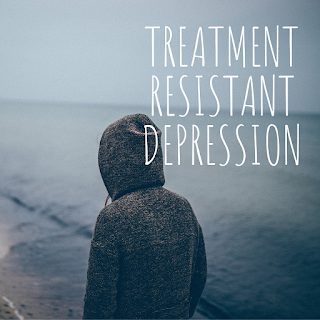When Antidepressants Just Aren't Enough
Antidepressants are a common way of treating depression. While this class of drugs can be effective for some people, other people may not realize the full benefits of this treatment and may be treatment-resistant. Perhaps you have struggled or know other people who have utilized traditional treatments without much success and feel hopeless about your treatment.
There are several classes of antidepressants that include:
- Selective serotonin reuptake inhibitors (i.e. Fluoxetine, Citalopram, Sertraline, Paroxetine, and Escitalopram)
- Serotonin and norepinephrine reuptake inhibitors (i.e. Venlafaxine, Duloxetine)
- Bupropion- increases activity in the brain and has been effective for smoke cessation.
- Older antidepressants (i.e. Tricyclics, Tetracyclics, and Monamine Oxidase Inhibitors (MAOIs).
Antidepressants have been effective for many people and been game changers in treating depression for many individuals. As with any medications, there are both benefits and adverse effects of utilizing pharmacology. DrugWatch.com (https://www.drugwatch.com/side-effects/) is a great resource for obtaining useful information.
So, what happens if you are in the subgroup of individuals who do not respond to traditional treatment such as antidepressants? What are your options? There are other options for treating depression that may be resistant to traditional treatment such as electroconvulsive therapy, transcranial magnetic stimulation, vagus nerve stimulation, or ketamine treatment.
Electroconvulsive therapy (ECT) is treatment that is used to treat depression that has not responded to traditional treatment. Electroconvulsive therapy involves placing the individuals under anesthesia to electrically stimulate the brain.
Transcranial Magnetic Stimulation (TMS) is a noninvasive treatment that utilizes magnetic fields to stimulate certain regions of the brain.
Vagus Nerve Stimulation (VNS) was originally developed to treat seizure disorder but has been useful in treating depression. An electrical pulse generator is placed under the skin and sends electrical pulses to the vagus nerve. The vagus nerve is an integral part of the autonomic nervous system and is important in regulating metabolic homeostasis (Howland, 2014).
Ketamine is an anesthetic that has been used to treat depression. Ketamine enables the cortex to develop new connections which helps individuals develop new positive thoughts and behaviors (Yale, 2022).
These are just some treatments to consider for treatment-resistant depression and there is no "one size fits all". What works for one person, may not work for another. Of course, there are other perspectives or holistic approaches to consider when developing a treatment plan for treating depression and an integrated approach appears to yield the best outcomes. For more information on these treatments, please review the sources noted below.
NCBI. (2020). Depression: How effective are antidepressants: Retrieved from https://www.ncbi.nlm.nih.
NIH MedlinePlus (2020). Commonly prescribed antidepressants and how they work.
American Psychiatric Association. (n.d.) What is electroconvulsive therapy (ECT)?
Retrieved from https://www.psychiatry.org/patients-families/ect.
Yale Medicine (2022). Treating Depression: An Expert Discusses Risks, Benefits of Ketamine.
Retrieved from https://www.yalemedicine.org/news/ketamine-the-new-miracle-drug.


I read this article, it is really informative one. Your way of writing and making things clear is very impressive. pls visit our website ketamine treatment bakersfield ca.Thanking you for such an informative article
ReplyDeleteYou are giving such interesting information. It is great and beneficial info for us, I really enjoyed reading it. Thankful to you for sharing an article like this. ketamine treatment of OCD
ReplyDeleteYou have given us very important data. It is excellent and informative for everyone. Keep posting always. I am heartily thankful to you. Pelvic floor physiotherapy calgary
ReplyDeleteAntidepressant drugs are crucial in helping many individuals with depression get the type of symptom relief they need to get back to living a happy, healthy, and productive life. Antidepressant drugs, however, might occasionally cease functioning as well as they once did or stop working altogether. When antidepressants fail to provide much-needed relief, it can be upsetting and depressing. Up to one in three patients who use antidepressants to treat severe depressive disorder either don't get enough relief from symptoms or get breakthrough symptoms after a brief period of improvement.
ReplyDeletemobile speech therapy